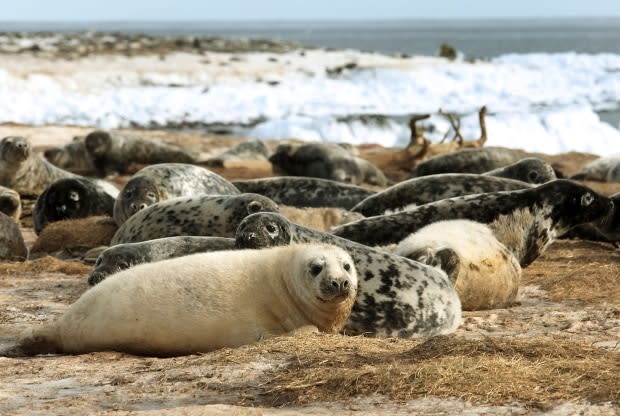In light of seal predation report, FFAW calls for government action
The union representing fish harvesters in Newfoundland and Labrador is launching a petition asking government to deal with what they say is an overpopulation of seals.
FFAW-Unifor accuses the Department of Fisheries and Oceans of remaining "complacent while evidence mounts that an overpopulation of seals is having a serious impact on important fish species."
A study conducted by DFO shows that a lack of cod recovery in the southern Gulf of St. Lawrence may be caused by predation by grey seals, and could account for up to 50 per cent of natural cod mortality.
This is limiting the cod stock's recovery, DFO said. An assessment predicts a 32 per cent drop in cod numbers over the next four years.
Union head Keith Sullivan is concerned this province will share a similar fate.

"Our coastal communities have strong ties to the sustainable seal hunt, which continues to make a significant contribution to the economy in rural Newfoundland and Labrador," Sullivan said in a news release Wednesday.
Sullivan is backed by Eldred Woodford, president of the Canadian Sealers Association, who hopes the province can take advantage of the overpopulation by finding new markets for seal products.
The union said seals, which can consume approximately two tonnes of prey each year, are ravaging stocks, and that "small commercial cod and capelin fisheries pale in comparison to the overwhelming volume potentially consumed as prey by seals."
However, in an interview with DFO marine mammal specialist Gary Stinson in May, he said it is hard to compare the two areas.
"It's not unexpected that there are different things driving those two populations," Stinson told CBC Radio's The Broadcast.
"It's a question of what's going on with the cod populations, rather than what's going on with the seal population."
On Aug. 14, the federal government announced it would establish a task force on Atlantic seal science. Similar studies have been launched in British Columbia following troubling scientific evidence showing the impact seals and sea lions have on fish populations.
The team will be co-chaired by Glenn Blackwood, the vice-president of Memorial University for the Fisheries and Marine Institute, and a DFO official.
Sullivan said the task team is a good start, but added "it's critical that this research leads to concrete action."
Read more from CBC Newfoundland and Labrador

